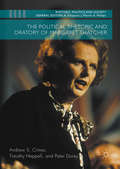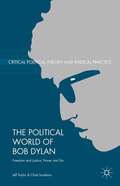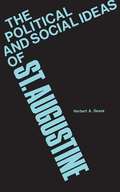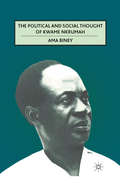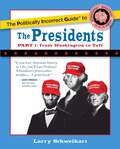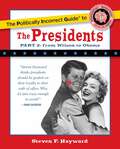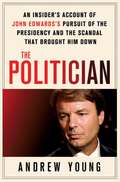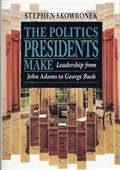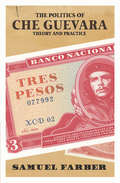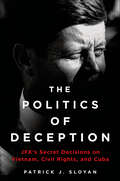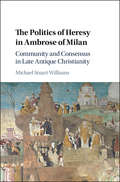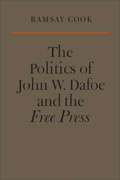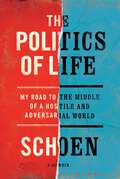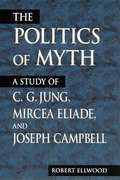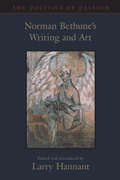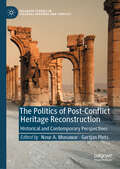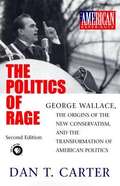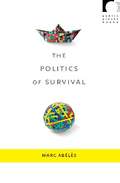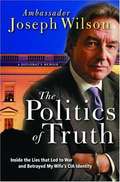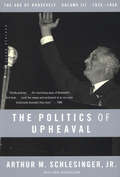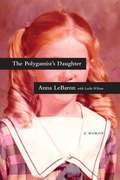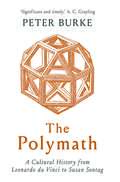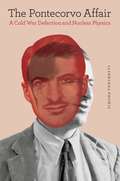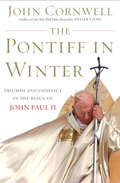- Table View
- List View
The Political Rhetoric and Oratory of Margaret Thatcher
by Peter Dorey Andrew S. Crines Timothy HeppellThis book examines the political oratory, rhetoric and persona of Margaret Thatcher as a means of understanding her justifications for 'Thatcherism'. The main arenas for consideration are set piece speeches to conference, media engagements, and Parliamentary orations. Thatcher's rhetorical style is analysed through the lens of the Aristotelian modes of persuasion (ethos, pathos, logos). Furthermore, the classical methods of oratorical engagement (deliberative, epidictic, judicial) are employed to consider her style of delivery. The authors place her styles of communication into their respective political contexts over a series of noteworthy issues, such as industrial relations, foreign policy, economic reform, and party management. By doing so, this distinctive book shines new light on Thatcher and her political career.
The Political World of Bob Dylan
by Jeff Taylor Chad IsraelsonThis work illuminates, identifies, and characterizes the influences and expressions of Bob Dylan's Political World throughout his life and career. An approach nearly as unique as the singer himself, the authors attempt to remove Dylan from the typical Left/Right paradigm and place him into a broader and deeper context.
The Political and Social Ideas of St. Augustine
by Herbert A. DeaneHerbert A. Deane discusses St. Augustine's views on humankind, society, and the state, in terms of Augustine's theological, political, and social thought. Deane writes in his Preface that Augustine did not have a systematic philosophy. Because of this, the author's writes that his second aim of his book is to organize his ideas into the above categories. Deane, not only elucidates Augustine's thought clearly, he also substantiates his elucidation with massive quotations from Augustine's writings and from the writings of other philosophers, theologians, and political and social analysts and critics. The following quotations are taken from the back cover of the book: In describing Augustine, the author captures the essence of the man in these words: "Genius he had in full measure . . . he is the master of the phrase or the sentence that embodies a penetrating insight, a flash of lightning that illuminates the entire sky; he is the rhetorician, the epi-grammist, the polemicist, but not the patient, logical systematic philosopher." "Professor Deane has been remarkably successful in keeping different facets of Augustine's multi-dimensional thought in view . . . [he] significantly contributes both to historical understanding of Augustine's political thinking and to appreciation of its permanent relevance to the moral dilemmas of politics."
The Political and Social Thought of Kwame Nkrumah
by Ama BineyInspired by Gandhi's non-violent campaign of civil disobedience to achieve political ends, Kwame Nkrumah led present-day Ghana to independence. This analysis of his political, social and economic thought centres on his own writings, and re-examines his life and thought by focusing on the political discourse and controversies surrounding him.
The Politically Incorrect Guide to the Presidents, Part 1: From Washington to Taft (The Politically Incorrect Guides)
by Larry Schweikart"If you love American history, as I do, you’ll love Professor Schweikart’s provocative profiles... A great book.”--David Limbaugh, New York Times bestselling authorLarry Schweikart, a retired history professor, is ready to set the record straight on the American presidents. He goes through each of the first 26 presidents from Washington to Taft and debunks myths, lies, and fake news made fact by the uninformed.Discover why George Washington favored American isolationism; James Madison supported states' rights; what Lincoln promised to Southerners about fugitive slaves; and why nineteenth-century presidents were the last to understand the true role of government.So what made these presidents so much better than the ones America has now? Schweikart argues that recent commanders-in-chief have welcomed crises to advance their own partisan agenda, defied the separation of powers the Founders carefully constructed to preserve the Republic, and given us every reason to doubt they take the country’s interests to heart.
The Politically Incorrect Guide to the Presidents, Part 2: From Wilson to Obama (The Politically Incorrect Guides)
by Steven F. Hayward"Steven Hayward thinks presidents should be graded on their loyalty to their oath of office. Why, it’s just crazy enough to work!”--Jonah GoldbergGovernment scholar Steven Hayward is ready to debunk some of the biggest presidential myths Americans believe are facts.In Politically Incorrect Guide to the Presidents, Part 2, he traces the legacy of each president from Wilson to Obama and along the way reveals truths most Americans never heard.JFK was assassinated by a Communist. FDR had the right to run against Hoover. Wilson openly criticized the Constitution. And the 2000 election did, in fact, reach the correct outcome. Uncover new revelations about each President and prepare yourself for an unvarnished look at the truth.
The Politician: An Insider's Account of John Edwards's Pursuit of the Presidency and the Scandal That Brought Him Down
by Andrew Young"The Politician" offers a look at the trajectory which made John Edwards the ideal Democratic candidate for president, and the hubris which brought him down, leaving his career, his marriage, and his dreams in ashes.
The Politics Presidents Make: Leadership from John Adams to George Bush
by Stephen SkowronekStephen Skowronek's wholly innovative study demonstrates that presidents are persistent agents of change, continually disrupting and transforming the political landscape. In an afterword to this new edition, the author examines "third way" leadership as it has been practiced by Bill Clinton and others. These leaders are neither great repudiators nor orthodox innovators. They challenge received political categories, mix seemingly antithetical doctrines, and often take their opponents' issues as their own. As the 1996 election confirmed, third way leadership has great electoral appeal. The question is whether Clinton in his second term will escape the convulsive end so often associated with the type.
The Politics of Che Guevara: Theory and Practice
by Samuel FarberThis reexamination of Ernesto "Che" Guevara's thoughts on socialism, democracy, and revolution is a must-read for today's activists--or anyone longing to fight for a better world.Fifty years after his death, Guevara remains a symbol to legions of young rebels and revolutionaries. This unique book provides a way to critically engage with Guevara's economic views, his ideas about revolutionary agency, and his conduct as guerrilla commander and government administrator in Cuba.Samuel Farber was born and raised in Cuba. He has written extensively on Cuba and the Cuban Revolution and is author of Cuba Since the Revolution of 1959.
The Politics of Deception: JFK's Secret Decisions on Vietnam, Civil Rights, and Cuba
by Patrick J. SloyanInvestigative reporter Patrick J. Sloyan, a former member of the White House Press Corps, revisits the last years of John F. Kennedy's presidency, his fateful involvement with Diem's assassination, the Cuban Missile Crisis and the Civil Rights Movement. Using recently released White House tape recordings and interviews with key inside players, The Politics of Deception reveals:Kennedy's secret behind-the-scenes deals to resolve the Cuban Missile Crisis.The overthrow and assassination of President Diem.Kennedy's hostile interactions with and attempts to undermine Martin Luther King, Jr. Kennedy's secret and fascinating dealings with Diem, General Curtis LeMay, King and Fidel Castro. Kennedy's last year in office, and his preparation for the election that never was.The Politics of Deception is a fresh and revealing look at an iconic president and the way he attempted to manage public opinion and forge his legacy, sure to appeal to both history buffs and those who were alive during his presidency.
The Politics of Heresy in Ambrose of Milan: Community and Consensus in Late Antique Christianity
by Williams Michael StuartAmbrose of Milan is famous above all for his struggle with, and triumph over, 'Arian' heresy. Yet, almost all of the evidence comes from Ambrose's own writings, and from pious historians of the next generation who represented him as a champion of orthodoxy. This detailed study argues instead that an 'Arian' opposition in Milan was largely conjured up by Ambrose himself, lumping together critics and outsiders in order to secure and justify his own authority. Along with new interpretations of Ambrose's election as bishop, his controversies over the faith, and his clashes with the imperial court, this book provides a new understanding of the nature and significance of heretical communities in Late Antiquity. In place of rival congregations inflexibly committed to doctrinal beliefs, it envisages a world of more fluid allegiances in which heresy - but also consensus - could be a matter of deploying the right rhetorical frame.
The Politics of John W. Dafoe and the Free Press
by Ramsay CookJohn W. Dafoe was a dominant figure in western Canadian political history during the first half of the twentieth century. As editor of the Winnipeg Free Press from 1901 to 1944, he gained an international reputation for his perceptive analysis of the issues facing Canada and the world. He was at the centre of almost every major political development of his time: he advised prime ministers, was deeply involved in organizing the Progressive party, and was a member of the crucial Rowell-Sirois Commission on federal-provincial relations. His influence was enormous, and at the time of his death he was widely regarded as the nation's most distinguished editor. This book is a study at close quarters of Dafoe, the man of politics. It focuses on the Dafoe who read and studied and the Dafoe who observed men and events; on Dafoe in his centre of operation and at the Free Press and Dafoe moving watchfully about the country and abroad when critical decisions were in the making; on the ideas confided in letters to friends and the ideas delivered in public speeches; on contributions made to conferences and commissions and advice given to political figures. The book is not intended as a complete biography of Dafoe in all his aspects, but it is even less an abstract treatise in the field of political theory. It is the biography of a political mind. The impression is of a mind recalled to its full vigour, for no prejudgments have been made about it and no restraints upon it. Ramsay Cook treats his subject with candour, but also with understanding and a sense of humour. He has ordered his material with extraordinary skill, so that his book is enjoyable reading as well as a valuable source of information about a distinguished Canadian and a momentous period in Canadian history.
The Politics of Life: My Road to the Middle of a Hostile and Adversarial World
by Douglas E SchoenDuring his more than 50 years in politics, Democratic strategist Douglas E. Schoen has produced nearly two dozen books that have deftly dissected national and international crises and offered prescriptions for solving them. Now, in The Politics of Life: My Road to the Middle of a Hostile and Adversarial World, Schoen delivers his most personal work. Bringing to life the antiwar youthquake of his Harvard years, Schoen introduces us to Cornel West, Walter Isaacson, Merrick Garland, and other classmates bound for glory. A tense summer in Mississippi helps Schoen appreciate the long game of candidate Charles Evers, a bootlegger-pimp turned civil rights crusader. In New York, he witnesses the twilight of clubhouse power as he canvasses for society swell Carter Burden, &“mob priest&” Louis Gigante, and Ed (How&’m doin&’?) Koch. Taking time out for his own run for Congress, Schoen joins data wunderkind Mark Penn in pioneering overnight polling – getting to know everyone from Camelot heir Ted Kennedy to crack-smoking mayor Marion Barry to a brash developer named Donald Trump. Penn & Schoen evolves into a global consultancy, taking on strongmen in Serbia, Mexico, Zimbabwe, Turkey, and Venezuela. Two of its clients are assassinated. Three win the Nobel Peace Prize. In 1996, the duo guides beleaguered President Bill Clinton to a second term and through a wrenching sex scandal. Using a unique strategy for micro-targeting voters, the firm helps give Mayor Michael Bloomberg the time he needs to steer New York City to a recovery after 9/11.A HALF-CENTURY IN POLITICS WAR STORIES AND WISDOM Schoen seems to be on top of the world when a British multinational pays a fortune for Penn & Schoen. Out on his own, he shrugs off a new generation of progressives who mock his centrist views and his willingness to debate conservatives on Fox News. Gradually, he reinvents himself. He becomes a syndicated columnist, co-founds a new polling company, immerses himself in Ukraine&’s struggle against Russia, and saddles up again with Michael Bloomberg to help oust now-President Trump. Along the way, some former critics admit Schoen might have been right. Brimming with ripping yarns from campaign war rooms, The Politics of Life is also a manual for living a productive and happy life. Sprinkled through the memoir are the author&’s &“Schoenisms&” – lessons he&’s learned the hard way: • It helps if your opinion is correct. But first, it should sound convincing. • Take on a despot when he first threatens you. Bullies only get bigger. • Martyrdom is overrated. Don't fall on any swords unless there&’s an ambulance on the way. • Shaming and blaming your opponents might impress your allies. But it doesn&’t accomplish much – aside from chasing people away from the bargaining table. • Don&’t waste time on feuds. Grudges sap your strength and hurt you almost as much as the person you&’re fighting. • Most people are mixtures of light and darkness. Life is about learning the moral gradients – the grayscale – and deciding how much shadow you can live with.
The Politics of Myth: A Study of C. G. Jung, Mircea Eliade, and Joseph Campbell
by Robert EllwoodEllwood (Religion, U. of Southern California) delves into the political views implicit in the mythological theories of probably the three best-known popularizers of myth in the 20th century. He points that all three emerged from the anti-modern pessimism and romanticism that also generated European fascism, and have all been accused of holding fascists and anti-Semitic sentiments. He assesses those charges in light of their entire career and lifetime contribution.
The Politics of Passion: Norman Bethune's Writing and Art
by Larry Hannant Norman BethuneThe Politics of Passion is the first comprehensive collection of the writing and art of Dr Norman Bethune. A Canadian medical pioneer and a communist, Bethune gained fame during the 1930s while serving in the Spanish Civil War and participating in China's struggle against Japanese invasion.This book sheds light on the man, the artist, and the revolutionary. It uncovers new historical material relating to several controversies surrounding Bethune. A remarkable document obtained from the Communist International Archives in Moscow, for instance, discusses why Bethune was sent home in disgrace from the Spanish Civil War. It refers to a mysterious Swedish woman, Kajsa von Rothman, who was Bethune's lover and who was believed by left-wing Spanish authorities to be politically suspect.This collection of Bethune's writings and art reveals that politics preoccupied him only during the last four years of his life. Earlier, his passionate nature found expression in medical and surgical innovation, as well as in painting, sketching, photography, writing - from poetry and short stories to letters, radio broadcasts, and plays - and public speaking. The Politics of Passion reveals the many sides of Bethune's identity, exploring not only the life of a revolutionary doctor, but of an intense and compassionate artist.
The Politics of Post-Conflict Heritage Reconstruction: Historical and Contemporary Perspectives (Palgrave Studies in Cultural Heritage and Conflict)
by Gertjan Plets Nour A. MunawarThis edited volume explores the politics and semantics of heritage rehabilitation practices such as conservation, archaeological excavation, memorialization and rebuilding programs. Recent conflicts in the Arab region and Ukraine have demonstrated how heritage is an intrinsic part of contemporary warfare. However, the politicization of heritage reconstruction after conflict receives less attention. While there is consensus on the benefits of reconstruction, a growing number of scholars are now exploring the political agendas encoded in reconstruction programs, and their long-term negative effects on societal recovery. Faced with a contemporary heritage reconstruction wave in the Arab region, but also in (post-)conflict zones like West-Africa and Ukraine, it is important we are aware of the politicking encoded in many heritage aid programs. Through a series of co-authored studies by experts from different disciplines this book aims to identify parameters, practices and institutional organizations that either promote or undermine long-term societal resilience. By combining insights from archaeology, anthropology, conflict and history, this book will explore how heritage reconstructions help to re-shape national and ethno-religious identities and multi-layered memories of affected communities.
The Politics of Rage: George Wallace, the Origins of the New Conservatism, and the Transformation of American Politics
by Dan T. CarterCombining biography with regional and national history, Dan T. Carter chronicles the dramatic rise and fall of George Wallace, a populist who abandoned his ideals to become a national symbol of racism, and later begged for forgiveness. In The Politics of Rage, Carter argues persuasively that the four-time Alabama governor and fourtime presidential candidate helped to establish the conservative political movement that put Ronald Reagan in the White House in 1980 and gave Newt Gingrich and the Republicans control of Congress in 1994. In this second edition, Carter updates Wallace's story with a look at the politician's death and the nation's reaction to it and gives a summary of his own sense of the legacy of "the most important loser in twentieth-century American politics."
The Politics of Survival
by Marc AbélésIn this provocative analysis of global politics, the anthropologist Marc Abls argues that the meaning and aims of political action have radically changed in the era of globalization. As dangers such as terrorism and global warming have moved to the fore of global consciousness, foreboding has replaced the belief that tomorrow will be better than today. Survival, outlasting the uncertainties and threats of a precarious future, has supplanted harmonious coexistence as the primary goal of politics. Abls contends that this political reorientation has changed our priorities and modes of political action, and generated new debates and initiatives. The proliferation of supranational and transnational organizations--from the European Union to the World Trade Organization (WTO) to Oxfam--is the visible effect of this radical transformation in our relationship to the political realm. Areas of governance as diverse as the economy, the environment, and human rights have been partially taken over by such agencies. Non-governmental organizations in particular have become linked with the mindset of risk and uncertainty; they both reflect and help produce the politics of survival. Abls examines the new global politics, which assumes many forms and is enacted by diverse figures with varied sympathies: the officials at meetings of the WTO and the demonstrators outside them, celebrity activists, and online contributors to international charities. He makes an impassioned case that our accounts of globalization need to reckon with the preoccupations and affiliations now driving global politics. The Politics of Survival was first published in France in 2006. This English-language edition has been revised and includes a new preface.
The Politics of Truth: A Diplomat's Memoir
by Joseph WilsonAmbassador Wilson writes a very engaging memoir of how he wound up in the diplomatic service. We follow his career from support staff overseas, to ambassador of several small African nations. He was also the last charge d'affairs in Iraq after the war began in 1990. He tells the story of how he got tangled up in the hardball and brutal politics of the current Bush administration, and how it differs from the norms of civil discourse in politics, and even from the first Bush administration, which praised Wilson lavishly.
The Politics of Upheaval: The Age of Roosevelt, 1935–1936 (The Age of Roosevelt #3)
by Arthur M. Schlesinger Jr.In the third volume of his series on Franklin Roosevelt, the Pulitzer Prize–winning historian focuses on the turbulent final years of FDR&’s first term.A measure of economic recovery revived political conflict and emboldened Roosevelt&’s critics to denounce &“that man in the White house.&” To his left were demagogues—Huey Long, Father Coughlin, and Dr. Townsend. To his right were the champions of the old order—ex-president Herbert Hoover, the American Liberty League, and the august Supreme Court. For a time, the New Deal seemed to lose its momentum. But in 1935 FDR rallied and produced a legislative record even more impressive than the Hundred Days of 1933—a set of statutes that transformed the social and economic landscape of American life. In 1936 FDR coasted to reelection on a landslide. Schlesinger has his usual touch with colorful personalities and draws a warmly sympathetic portrait of Alf M. Landon, the Republican candidate of 1936.&“One of the most important historical enterprises of our time.&”—Saturday Review &“Vividly portrays…the concluding years of Roosevelt&’s first term…[and] the sweep and excitement of an era more historically dramatic than most.&”—Time
The Polygamist's Daughter: A Memoir
by Anna LeBaron Leslie WilsonMy father had thirteen wives and more than fifty children . . . This is the haunting memoir of Anna LeBaron, daughter of the notorious polygamist and murderer Ervil LeBaron. Ervil’s criminal activity kept Anna and her siblings constantly on the run from the FBI. Often starving, the children lived in a perpetual state of fear—and despite their numbers, Anna always felt alone. Would she ever find a place she truly belonged? Would she ever be anything other than the polygamist’s daughter? Filled with murder, fear, and betrayal, The Polygamist’s Daughter is the harrowing, heart-wrenching story of a fatherless girl and her unwavering search for love, faith, and a place to call home.
The Polymath: A Cultural History from Leonardo da Vinci to Susan Sontag
by Peter BurkeThe first history of the western polymath, from the fifteenth century to the present day From Leonardo Da Vinci to John Dee and Comenius, from George Eliot to Oliver Sacks and Susan Sontag, polymaths have moved the frontiers of knowledge in countless ways. But history can be unkind to scholars with such encyclopaedic interests. All too often these individuals are remembered for just one part of their valuable achievements. In this engaging, erudite account, renowned cultural historian Peter Burke argues for a more rounded view. Identifying 500 western polymaths, Burke explores their wide-ranging successes and shows how their rise matched a rapid growth of knowledge in the age of the invention of printing, the discovery of the New World and the Scientific Revolution. It is only more recently that the further acceleration of knowledge has led to increased specialisation and to an environment that is less supportive of wide-ranging scholars and scientists. Spanning the Renaissance to the present day, Burke changes our understanding of this remarkable intellectual species.
The Pontecorvo Affair: A Cold War Defection and Nuclear Physics
by Simone TurchettiIn the fall of 1950, newspapers around the world reported that the Italian-born nuclear physicist Bruno Pontecorvo and his family had mysteriously disappeared while returning to Britain from a holiday trip. Because Pontecorvo was known to be an expert working for the UK Atomic Energy Research Establishment, this raised immediate concern for the safety of atomic secrets, especially when it became known in the following months that he had defected to the Soviet Union. Was Pontecorvo a spy? Did he know and pass sensitive information about the bomb to Soviet experts? At the time, nuclear scientists, security personnel, Western government officials, and journalists assessed the case, but their efforts were inconclusive and speculations quickly turned to silence. In the years since, some have downplayed Pontecorvo's knowledge of atomic weaponry, while others have claimed him as part of a spy ring that infiltrated the Manhattan Project. The Pontecorvo Affair draws from newly disclosed sources to challenge previous attempts to solve the case, offering a balanced and well-documented account of Pontecorvo, his activities, and his possible motivations for defecting. Along the way, Simone Turchetti reconsiders the place of nuclear physics and nuclear physicists in the twentieth century and reveals that as the discipline's promise of military and industrial uses came to the fore, so did the enforcement of new secrecy provisions on the few experts in the world specializing in its application.
The Pontecorvo Affair: A Cold War Defection and Nuclear Physics
by Simone TurchettiIn the fall of 1950, newspapers around the world reported that the Italian-born nuclear physicist Bruno Pontecorvo and his family had mysteriously disappeared while returning to Britain from a holiday trip. Because Pontecorvo was known to be an expert working for the UK Atomic Energy Research Establishment, this raised immediate concern for the safety of atomic secrets, especially when it became known in the following months that he had defected to the Soviet Union. Was Pontecorvo a spy? Did he know and pass sensitive information about the bomb to Soviet experts? At the time, nuclear scientists, security personnel, Western government officials, and journalists assessed the case, but their efforts were inconclusive and speculations quickly turned to silence. In the years since, some have downplayed Pontecorvo’s knowledge of atomic weaponry, while others have claimed him as part of a spy ring that infiltrated the Manhattan Project. The Pontecorvo Affair draws from newly disclosed sources to challenge previous attempts to solve the case, offering a balanced and well-documented account of Pontecorvo, his activities, and his possible motivations for defecting. Along the way, Simone Turchetti reconsiders the place of nuclear physics and nuclear physicists in the twentieth century and reveals that as the discipline’s promise of military and industrial uses came to the fore, so did the enforcement of new secrecy provisions on the few experts in the world specializing in its application.
The Pontiff in Winter: Triumph and Conflict in the Reign of John Paul II
by John CornwellOver more than a quarter of a century, John Paul II has firmly set his stamp on the billion-member strong Catholic Church for future generations and he has become one of the most influential political figures in the world. His key role in the downfall of communism in Europe, as well as his apologies for the Catholic Church's treatment of Jews and to victims of the Inquisition, racism, and religious wars, won him worldwide admiration. Yet his papacy has also been marked by what many perceive as misogyny, homophobia, and ecclesiastical tyranny. Some critics suggest that his perpetuation of the Church's traditional hierarchical paternalism contributed to pedophiliac behavior in the priesthood and encouraged superiors to sweep the crimes under the carpet. The Pontiff in Winterbrings John Paul's complex, contradictory character into sharp focus. In a bold, highly original work, John Cornwell argues that John Paul's mystical view of history and conviction that his mission has been divinely established are central to understanding his pontificate. Focusing on the period from the eve of the millennium to the present, Cornwell shows how John Paul's increasing sense of providential rightness profoundly influenced his reactions to turbulence in the secular world and within the Church, including the 9/11 attacks, the pedophilia scandals in the United States, the clash between Islam and Christianity, the ongoing debates over the Church's policies regarding women, homosexuals, abortion, AIDS, and other social issues, and much more. A close, trusted observer of the Vatican, Cornwell combines eyewitness reporting with information from the best sources in and outside the pope's inner circle. Always respectful of John Paul's prodigious spirit and unrelenting battles for human rights and religious freedom, Cornwell raises serious questions about a system that grants lifetime power to an individual vulnerable to the vicissitudes of aging and illness. The result is a moving, elegiac portrait of John Paul in the winter of his life and a thoughtful, incisive assessment of his legacy to the Church.
